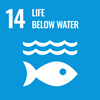
EHP Infection: Starving the Shrimp from the Inside
Topic Overview
Whiteleg shrimp (Penaeus vannamei) is a cornerstone of global aquaculture, but a tiny parasite called Ecytonucleospora hepatopenaei (EHP) poses a major threat. EHP doesn’t usually kill the shrimp, but it causes severe growth retardation, leading to significant economic losses for farmers worldwide. Because EHP is an obligate parasite, it must steal all its energy from the host shrimp to survive.
Paper Findings
Our study investigated how EHP damages shrimp by focusing on lipid metabolism, as fat is the most energy-dense resource for any organism. We found that EHP infection progressively impairs two key systems:
- Impaired Digestion: EHP causes a progressive drop in the activity and production of vital digestive enzymes (like trypsin, amylase, and lipase). This means the shrimp cannot effectively digest and absorb nutrients from the food they eat.
- Lipid Reservoir Depletion: Crucially, we found that EHP causes a chronic, severe depletion of the shrimp’s internal fat reserves (called lipid droplets) from the very beginning of the infection. This depletion happens because the parasite triggers the shrimp’s system to break down fat faster than it can synthesize new fat. The effect is essentially draining the shrimp’s primary energy battery.
Key Takeaways
The growth retardation seen in EHP-infected shrimp is a direct result of this double blow: poor nutrient intake from impaired digestion, coupled with the forced starvation of their internal fat stores. This imbalance drains the host’s energy and impairs its health over the long term.
These findings suggest that a practical management strategy could involve supplementing the shrimp’s diet with high-quality lipids, which might help the shrimp counteract the metabolic disruption caused by EHP and ultimately lessen the growth stunting.
การติดเชื้อ EHP: การทำให้กุ้งอดอาหารจากภายใน
ภาพรวมของหัวข้อวิจัย
กุ้งขาว (Penaeus vannamei) เป็นสัตว์เศรษฐกิจสำคัญในการเพาะเลี้ยงสัตว์น้ำทั่วโลก แต่ปรสิตขนาดเล็กที่เรียกว่า Ecytonucleospora hepatopenaei (EHP) เป็นภัยคุกคามที่สำคัญ EHP มักไม่ทำให้กุ้งตาย แต่ส่งผลให้การเจริญเติบโตของกุ้งชะงักอย่างรุนแรง ซึ่งนำไปสู่ความสูญเสียทางเศรษฐกิจอย่างมากสำหรับเกษตรกรทั่วโลก เนื่องจาก EHP เป็นปรสิตที่ต้องอาศัยภายในเซลล์ มันจึงต้องขโมยพลังงานทั้งหมดจากกุ้งเจ้าบ้านเพื่อความอยู่รอด
ผลการค้นพบของงานวิจัย
งานวิจัยของเราศึกษาว่า EHP สร้างความเสียหายต่อกุ้งได้อย่างไร โดยมุ่งเน้นไปที่ การเผาผลาญไขมัน เนื่องจากไขมันเป็นแหล่งพลังงานที่มีความหนาแน่นสูงสุดสำหรับสิ่งมีชีวิตใด ๆ เราพบว่าการติดเชื้อ EHP ส่งผลกระทบต่อระบบสำคัญสองระบบ:
- การย่อยอาหารที่บกพร่อง: EHP ทำให้กิจกรรมและการผลิตเอนไซม์ช่วยย่อยที่สำคัญ (เช่น ทริปซิน, อะไมเลส, และไลเปส) ลดลงอย่างต่อเนื่อง ซึ่งหมายความว่ากุ้งไม่สามารถย่อยและดูดซึมสารอาหารจากอาหารที่กินได้อย่างมีประสิทธิภาพ
- การสูญเสียแหล่งสะสมไขมัน: ที่สำคัญ เราพบว่า EHP ทำให้เกิดการสูญเสียไขมันสำรองภายใน (เรียกว่า หยดไขมัน (lipid droplets)) อย่างรุนแรงและต่อเนื่องตั้งแต่เริ่มมีการติดเชื้อ การสูญเสียนี้เกิดขึ้นเนื่องจากปรสิตกระตุ้นให้ระบบของกุ้ง สลาย ไขมันเร็วกว่าที่กุ้งจะสามารถ สังเคราะห์ ไขมันใหม่ได้ ผลที่ตามมาคือเหมือนการระบายพลังงานหลักของกุ้งจนหมด
ข้อสรุปที่สำคัญ
การที่กุ้งที่ติดเชื้อ EHP มีการเจริญเติบโตที่ช้าลง เป็นผลโดยตรงจากความเสียหายสองด้านนี้ นั่นคือ การได้รับสารอาหารที่ไม่เพียงพอ จากการย่อยอาหารที่บกพร่อง ควบคู่ไปกับ การอดอาหารโดยถูกบังคับ จากแหล่งสะสมไขมันภายใน ความไม่สมดุลนี้ทำให้พลังงานของกุ้งเจ้าบ้านถูกใช้ไปและส่งผลเสียต่อสุขภาพในระยะยาว
ผลการค้นพบเหล่านี้ชี้ให้เห็นว่า กลยุทธ์การจัดการที่เป็นไปได้คือ การเสริมอาหารกุ้งด้วยไขมันคุณภาพสูง ซึ่งอาจช่วยให้กุ้งสามารถต่อต้านการหยุดชะงักของการเผาผลาญที่เกิดจาก EHP และในที่สุดจะช่วยลดระดับการชะงักงันของการเจริญเติบโตได้
Reference
Yuanlae S, Thaiue D, Saedan S, Kittiwongpukdee K, Vanichviriyakit R, Chuchird N, Itsathitphaisarn O. Ecytonucleospora hepatopenaei causes lipid droplet depletion and imbalanced lipid metabolism in Penaeus vannamei. Sci Rep. 2025;15(1):37198.
Relevant SDGs

BC investigator

